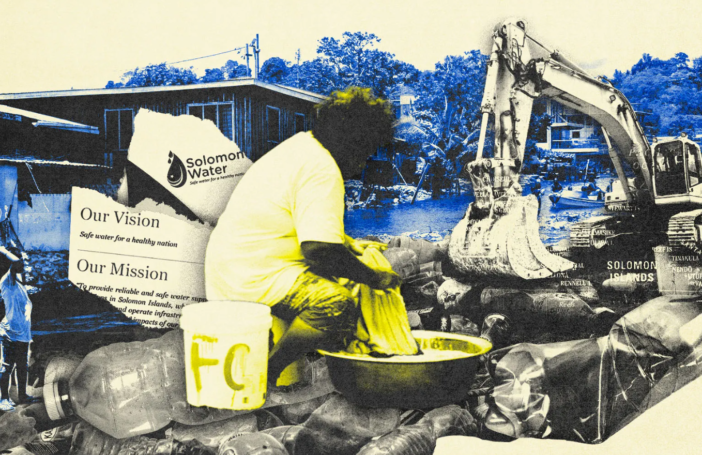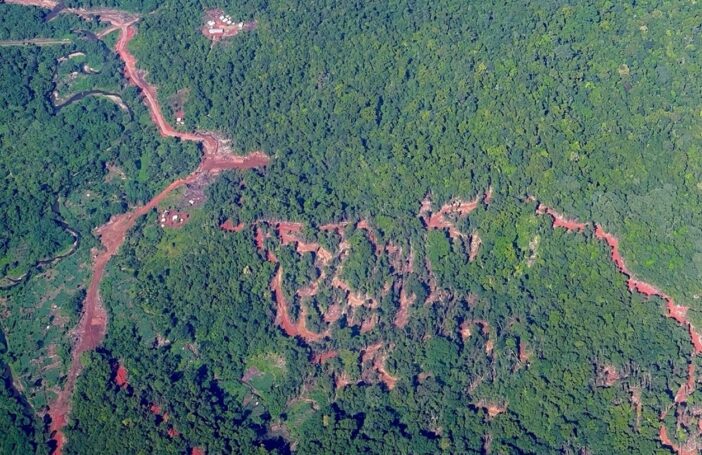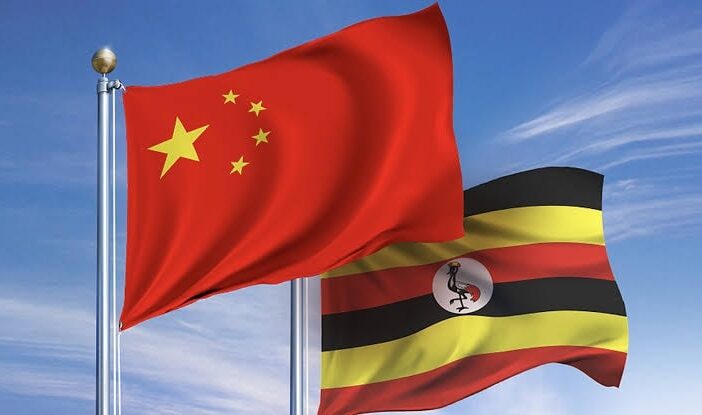We republish in two parts an investigation first published by In-depth Solomons and undertaken in collaboration with the Organized Crime and Corruption Reporting Project (OCCRP). Part 1 described the circumstances leading to the award of a contract to the Rean/PCS consortium for the construction of the Kongulai water treatment plant.
As its bid for the Kongulai project was being evaluated, Rean/PCS was facing scrutiny for non-performance on four separate ADB-funded water treatment systems in the central Indian state of Madhya Pradesh, according to court records from the joint venture’s unsuccessful appeal of the blacklisting.
A January 2022 “show cause” letter from the state-owned Madhya Pradesh Urban Development Company, included in the court records, noted that each of these projects was more than four years behind schedule and warned that Rean/PCS was at risk of being blacklisted by the state.
The company ultimately was blacklisted for two years in June 2022 — just a month after it was awarded the Solomon Islands tender.
The “show cause” letter was copied to ADB staff members, meaning that at least some staff had access to the material while the Solomon Islands bid was being evaluated. ADB declined to answer specific questions about the letter.
By August 2022, just three months into the project, Kongulai was already running dangerously behind schedule, according to minutes of meetings between Solomon Water and Rean/PCS.
That month, a Solomon Water manager told the board that Rean/PCS had been notified of three breaches of contract for failing to complete key tasks, including securing the insurance needed to build permanent structures, a copy of the report obtained by OCCRP shows. The board was told that it would be “impossible” for the contractor to meet its June 2023 deadline.
Having lost nearly a year due to Rean/PCS’ failure to secure the necessary insurance policy, Solomon Water issued a stop work order on the project in May 2023. Leaked correspondence between Solomon Water and Rean shows that, in December that year, Solomon Water discovered that, despite assurances from Rean that all was well, their partner P.C. Snehal had walked away from the project just a month after the Kongulai contract was awarded.
The correspondence shows that neither Indian company informed Solomon Water of the change — as the contract required — until the utility’s officials confronted them.
That was the last straw for Solomon Water. Days after they found out that PCS had exited the project, the board terminated the contract, according to a letter sent by the utility’s board to Rean. Rean appealed, and a court granted an interim injunction that temporarily blocked the termination. The case will be heard in court in March next year. It is not clear how much, if anything, Rean has been paid.
Former Solomon Water CEO Ian Gooden, who negotiated the aid package and oversaw the project for the first 14 of its scheduled 18 months, said that by the time he left in July 2023, just five percent of the project had been completed.
“Every single step of the way,” Gooden said, Rean/PCS “stalled, or they were delayed, or they couldn’t do this, or their documentation was poor.”
With the Kongulai project stalled, Solomon Islands’ coalition government has blamed Solomon Water, and not Rean/PCS, for the debacle.
In March 2024, nearly three months after Solomon Water terminated the contract, the government demanded the head of the utility’s project management unit be fired. To add pressure, the government temporarily suspended access to ADB funds, the Ministry of Finance’s Permanent Secretary McKinnie Dentana told OCCRP.
In August, Tovosia, the minister responsible for water, revoked the company’s status as a state-owned enterprise, a designation which had allowed the utility to operate independently. This effectively placed it under Tovosia’s direct control and allowed him to replace the board.
Speaking to parliament in September, Tovosia defended his decision and blasted Solomon Water, saying it had “shown a clear disregard for the government’s priorities”.
The move set off a public controversy. Opposition Leader Matthew Wale defended Solomon Water and pointed toward the failures of Rean/PCS, telling parliament the joint venture had “done nothing” and that it would be a “tragedy” if it benefited from the Solomon Water board restructuring.
United Party MP Peter Kenilorea Jr. has challenged Tovosia’s decision in court. On November 18, he filed suit against the government over Tovosia’s choice of board members — mostly senior civil servants, including the commissioner of police.
Meanwhile, the only work to be completed on the project so far are some minor earthworks. When reporters visited the worksite, they were told by people at the site that Tovosia’s son, Freling Tovosia, had been staying nearby with a crew carrying out the work.
When asked, the minister’s son confirmed that Rean/PCS had subcontracted a company he owned to complete the work and said that he had discussed the matter with his father.
“I was engaged to do excavation and clearing works,” he told reporters. “We did not really sign any contract with Rean. They just told me that we will be paid according to the work done, or how many cubic meters of soil is removed.”
He said that he stopped work after Rean failed to pay him what he was owed.
“I told them to pay me first, before I continue,” he said, adding that he had asked his father to intervene to help him get paid, but he refused. He did not add further detail about when the work took place or how much he was expected to be paid.
Freling Tovosia’s work on the project was not discussed in parliament. Opposition leader Matthew Wale told reporters he’d never heard about the son’s work for Rean/PCS, but said: “If they subcontracted him to do work, whether big or small, it doesn’t look right at all.”
In the meantime, Honiara’s clean water crisis continues. During an October visit to Lord Howe, a shantytown in Honiara, reporters saw children swimming in the polluted waters of the Mataniko river, and playing on river banks lined with thousands of plastic water bottles.
Seasonal rains continue to cause waterborne illnesses, a situation that health authorities warn will be worsened by climate change. A rapidly rising urban population is only intensifying the problem, says Jemima Kera, nurse in charge of the Mataniko Pikinini Clinic. She told reporters that the clinic treats 30 to 40 patients suffering from diarrheal disease a week.
Flooding in the water catchments often mixes sediment and organic material into the water supply, forcing Solomon Water to shut down service to most of the city — something that happened at least 10 times in 2024 alone, according to social media notices published by the utility.
Whenever this happens, people in overcrowded settlements are forced to buy expensive bottled water or scrounge drinking and cooking water wherever they can.
“It doesn’t matter how dirty it is, but they will use the river as a last resort,” said Lawrence Makili, a Lord Howe resident who has devoted the last three decades to activism on environmental causes. “We need that water treatment plant.”
Lord Howe resident Joyce Seuaka said the only reliable source of clean water is bottled water, a cost as high as US$4 per day — more than half the daily income of the average Solomon Islander.
Seuaka recalled recently helping to prepare a one-year-old girl’s body for burial. The child had been admitted to hospital with diarrhea, but by the time she was given treatment, Seuaka said, “it was too late”.
Read Part 1 of the blog here.




